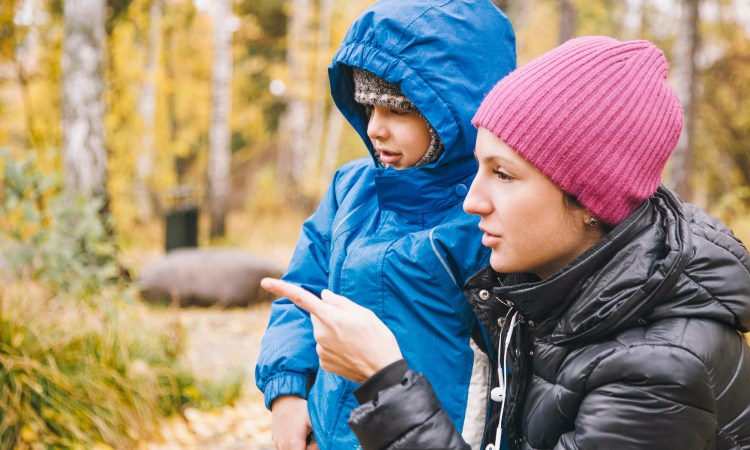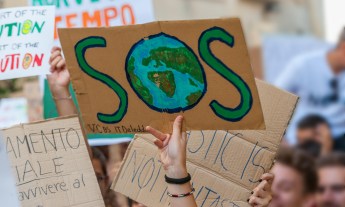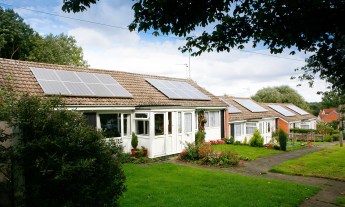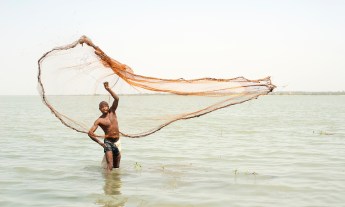
As parents, many of us have had challenging conversations with our children over the last year.
In the US, we’ve confronted a pandemic that shut down schools, a divisive election and a renewed call to address the pervasive racial injustices that have plagued our country for centuries.
These are all urgent and important. And there’s one more to add to the list — climate change.
Climate change is no longer a future issue. It’s already affecting nearly every aspect of our lives and our children’s futures. It’s making our heat waves more deadly, our storms more intense, and our wildfires burn with ferocity.
When we talk to our kids, we have to be honest. Climate change is real, and it’s serious. But the most important thing we can give them is hope: that there are solutions, and everyone has something to contribute no matter their age.
Here are 4 tips that we — the two of us are climate scientists and moms — hope will help you have a positive and constructive climate conversation with your children.
1. Start by listening
Many kids are already aware that the climate is changing. They first learn about climate change in school, online or from their friends — they may even be talking about it with their parents already. In a recent poll of American teenagers, 57 percent said that climate change made them feel scared and 52 percent said it made them feel angry.
We’re climate scientists and we agree: Climate change is scary. It makes us feel anxious, and even angry, when we see people sticking their fingers in their ears and ignoring the warnings that are piling up faster and faster.
Talking about climate change doesn’t have to be complicated, take too much time, or be filled with doom and gloom predictions.
That’s why it’s so important to practice what psychologist Renee Lertzman refers to as attunement. “Attunement is when we’re feeling in sync, when we feel understood and we feel accepted for exactly where we are,” Lertzman explains in her TED Talk. The first step is looking inward at what we are feeling; then to our kids and what they are experiencing; and finally, to all the other living things that share this planet with us and are also being affected by climate change. How do we relate to them all?
By taking the time to understand how we feel about climate change ourselves and then listening to our children discuss their fears and hopes around the issue, we can attune ourselves to their perspectives. We can help them figure out how they can be part of the solution, too.
2. Keep learning
Being a parent is tough and the to-do list never seems to end. The good news is, talking about climate change doesn’t have to be complicated, take too much time or be filled with doom and gloom predictions.
That’s why we’ve launched Science Moms. We’re a nonpartisan group of climate scientists who are also moms. On our website, Instagram, Facebook and Twitter, we provide resources that break down the issue of climate change in simple and digestible ways.
There are also some great TED talks, videos and articles you can listen to or watch. Plus, we’ve curated a list of books for you and your kids. On social media, find and follow sources that will keep you up to date on climate action and solutions.
Continuing to learn more about climate change yourself can prepare you to answer your kids’ questions and help them tackle it side-by-side.
Kids who play outdoors are more likely to be interested in protecting nature as adults.
3. Connect with nature
Encouraging your kids to play outside helps them appreciate the outdoors. A study conducted a few years ago found that kids who play outdoors are more likely to be interested in protecting nature as adults.
According to National Geographic, 55 percent of all people live in urban areas, which means you may need to get creative. Take your kids on a walk or a bike ride; figure out what you could grow in your yard, or planters at the window or on a balcony; identify local birds or wildflowers (there’s an app for that!); take a day to visit a state or national park.
It isn’t only about the future: allowing your kids to experience nature improves their wellbeing. Research suggests that kids who interact with nature are more likely to be in good health. They also tend to be more creative thinkers, and more inclined towards cooperating with others.
So think outside the box: how can you go to nature, or how might nature come to you?
4. Empower your kids to act
Most kids know that climate change is happening, but they might not know what we can do to fix it. Often, what holds us back from acting is a lack of efficacy: we are not convinced that we can make a difference. So what builds efficacy? Knowing that we can.
Build your kids’ efficacy by looking for examples of people — especially kids — who are making a difference. Talk about them! There are kids winning science fairs for designing new ways to get energy from the sun, the wind, the tides and even algae. Kids are participating in climate strikes and suing the US and Canadian federal governments for the right to their future. Young people on social media are sharing solutions, like reducing waste and planting trees. They’re partnering with their schools, cities and local organizations to encourage change at every level. Kids’ voices actions are already incredibly effective.
You can also empower your kids by looking for opportunities for them (and maybe you, too) to help. Learn about the variety of solutions available from resources like Project Drawdown. Ask: Is there a program at their school they could join (or even start)? A chance to clean up a local green space or river or plant trees together? A school project or a science fair they could participate in?
Each one of us has a voice, and using it is how we change the world.
As parents, we are our kids’ best resource as they begin to understand the realities of the climate crisis and what it will mean for their generation. We can start by having the tough but necessary conversations. Inspire them to do their own research, ask questions and uncover the intricacies of how we as humans interact with the environment.
Most of all, encourage your kids to use their voices to express their concerns and share the good news of the solutions that exist. Each one of us has a voice, and using it is how we change the world. Later is too late. The time to talk about it — and act — is now.
Dr. Katharine Hayhoe and Dr. Rosimar Rios-Berrios are members of Science Moms, a nonpartisan group of climate scientists and mothers who are aiming to demystify climate science and inspire action.
Watch Katharine Hayhoe’s TED Talk on why we need to talk about climate change:
Watch Renee Lertzman‘s TED Talk and learn how to turn climate anxiety into something productive:











